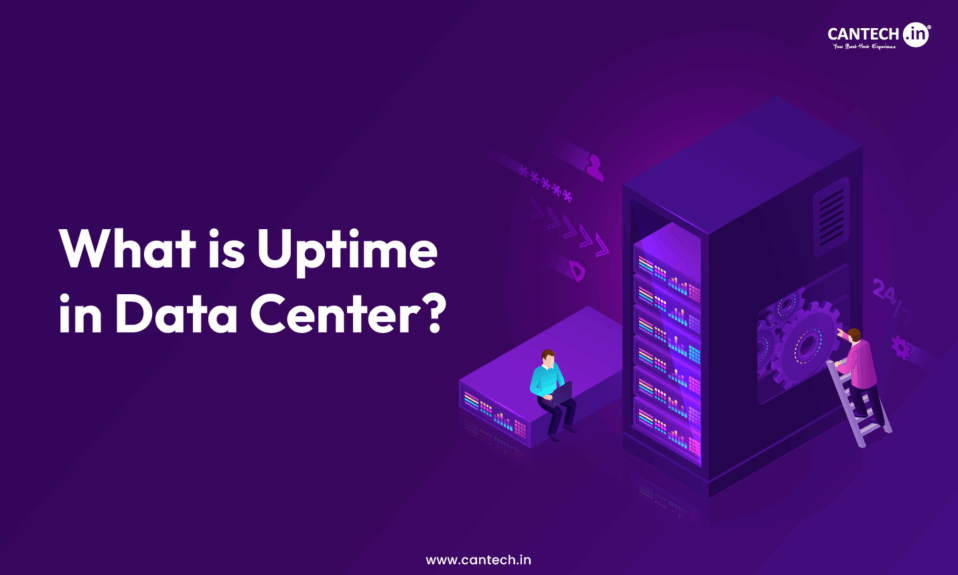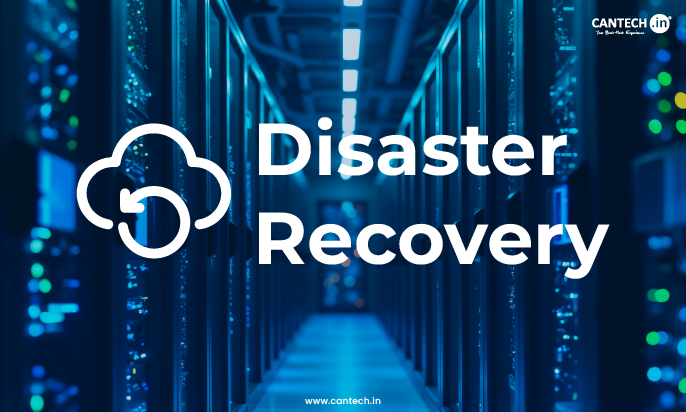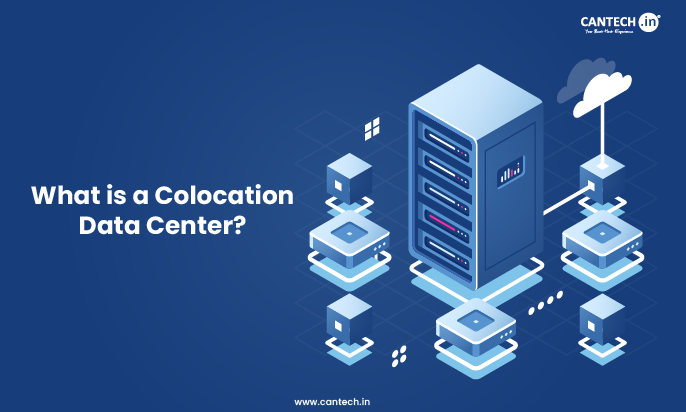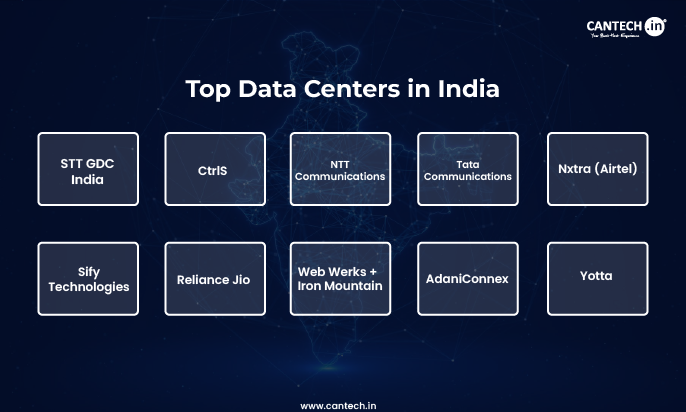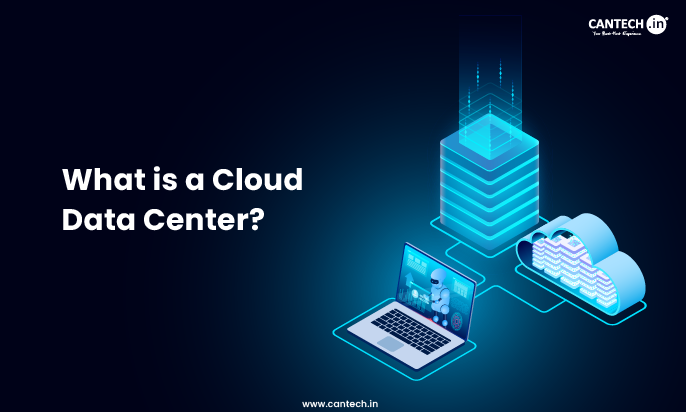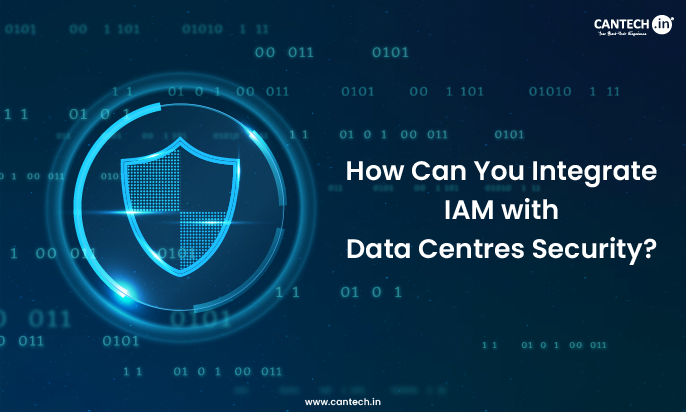In the new digital-first era, organizations are actively in search of a dependable, scalable and affordable solution to undertake the management of their IT infrastructure. Colocation and data center are two terms that regularly emerge in the discussion. Although they might be interchangeable, they are used for different purposes and have different benefits based on the needs of your organization.
This blog not only explores the Colocation Meaning and What is a Data Center in depth, but also looks into the intricacies of Colocation vs Data Center, preparing you with the knowledge to make well-informed choices about your enterprise or startup.
Colocation Meaning
The term colocation or ‘colo’ is used to describe the process of locating privately-owned servers and networking equipment in a third-party data facility. Rather than purchasing and operating your own facility, you lease space, which may be rack, cabinet, cage, or room, in a professionally operated data center.
Key Features of Colocation
- You own the hardware.
- The plant offers bandwidth, power, cooling and physical security.
- You have control over your systems but use the infrastructure of a bigger provider.
- Colocation is the most suitable where the company needs to have control of its IT equipment but will not own the data center so that they will not have to spend huge sums of money in constructing their own data center.
What is a Data Center?
A data center is a special purpose building that is built to contain computer hardware, like servers, storage systems and networking devices. These facilities are designed to be highly available, redundant, and secure, and are the workhorse of digital operations in the present day.
Be it a hyperscale data center run by tech giants or a local center that caters to the needs of local businesses, the definition of data center will always be the same: it is a central processing, storage, and distribution facility of data.
Meaning of Data Center
To explain further, the definition of data center is not limited to physical infrastructure. It encompasses:
Operational Reliability
Operational reliability is the capacity of a data center to operate day and day out. This is by way of the introduction of redundancy systems that serve as backups to avoid periods of downtime. Redundant power sources are significant, and they may include several uninterruptible power supply (UPS) devices, backup power generators, and a connection to alternative power grids. A failure of any single power source triggers the activation of another source so that servers and other equipment do not go dead.
Redundant network connectivity also provides data centers with operational reliability. This is the application of multiple internet service providers (ISPs) and various fiber optic cable paths. When a network route is disabled or an ISP goes offline, traffic will automatically be redirected via another route without causing any disruption to the services. These redundancies are meant to remove single points of failure, which means that when a component fails or an external incident occurs, the data center can absorb the impact without compromising the services that it offers.
Security Protocols
Security measures refer to the actions that are implemented in order to secure a data center against unauthorized access and possible threats, both physical and digital. One of the most basic security layers is physical access control, which begins with perimeter fencing, security guards and surveillance cameras. Within the facility, only authorized staff should enter the building, which can be achieved using keycard, biometric, fingerprint, or retinal scans, and multi-factor authentication.
Besides physical, cybersecurity is the most important in securing the data itself. This consists of firewalls, intrusion detection system (IDS) and anti-malware software to protect against network attacks. Security audits, vulnerability scans and penetration testing are performed regularly to discover and correct weaknesses.
Scalability
Scalability is the capability of the data center to expand and meet the growing demands of the business. It is one of the basic attributes that enable a company to extend its operations without the need of making a total overhaul of its IT infrastructure. A scalable data center is built to scale in the future, using modular designs so it can easily add new servers, storage and networking devices.
On-demand expansion of resources is valuable to businesses with intermittent or quickly evolving data needs. A company can begin with a smaller operation instead of investing in a huge expensive infrastructure at the start, then add capacity as it grows. This is a cost-efficient and efficient pay-as-you-grow model.
Compliance
Compliance is a term that describes the compliance of a data center with different industry standards, governmental regulations, and best practices. These standards are not only legally required in most instances but also indicators of an investment in security, privacy, and quality. Information security management based on ISO 27001 industry standards and data security, availability and confidentiality based on SOC 2 (Service Organization Control) offer guidelines on sound data management practices.
In addition, data centers are required to meet certain rules depending on the nature of information they manage. As an example, medical information data centers in the United States must comply with HIPAA (Health Insurance Portability and Accountability Act) that requires high security and privacy levels on the protected health information.
In a sense, a data center is the virtual soul of an organization, which can facilitate cloud computing, enterprise resource planning (ERP), etc.
What is Colocation?
We should take a quick look at what is colocation.
Colocation is more than renting space, it is an outsourcing of the physical environment, with control of your IT stack. Your servers, storage and switches are brought by yourself and the colocation provider guarantees that your machines are operational within a stable, secure and connected environment.
Know More : What is Colocation?
Benefits of Colocation
Reduced Capital Expenditure
A migration to a data center service will eliminate the requirement to make a large capital investment. Businesses can take advantage of the existing facilities of a service provider, as opposed to investing huge amounts of money in constructing or expanding a personal data center, including the cost of land, construction, hardware and infrastructure such as power and cooling.
This reduction of capital expenditure (CapEx) to operational expenditure (OpEx) enables businesses to pay a fixed, continuous fee, which leaves capital available to use in the business, research, and development. This model is specifically helpful when working with a start-up and small to medium-sized enterprises that might lack the funds needed to invest in a large infrastructure project. Cantech’s Small business colocation provides these organizations with access to secure, high-performance data center facilities at a fraction of the cost of building and maintaining their own.
Improved Availability and Reliability
Data centers provide better uptime and performance through the use of enterprise infrastructure and professional management. To ensure that they do not have single points of failure, they use redundant systems to support power, cooling, and network connectivity so that services stay online when a component fails or power goes off.
Most facilities also have numerous links to various power grids and ISPs to ensure that they are running at all times. This degree of redundancy can be too costly or complicated to be handled by an individual company, and a data center can be a more sound and dependable way of supporting mission-essential activities.
High-Speed Connectivity
High-speed accessibility is one of the features that data centers are designed with. They are stationed in urban or suburban regions with access to large fiber optic networks and do direct peering with other internet service providers (ISPs).
This enables companies to enjoy low latency and high data bandwidth which is crucial when using cloud computing, mass data transfer and real time applications. By using a data center, organizations are able to overcome the constraints of a typical office network to offer a stronger and more effective connection to operations and services provided.
Disaster Recovery and Business Continuity Support
Data centers are a highly important part of business continuity planning and disaster recovery (DR). They offer an off-site backup storage area, which is secure. When a fire, flood, or other calamity strikes the main office of a firm, the business can easily redirect to the resources within the data center, reducing downtime and loss of data.
To assist businesses to get online within a short period, several data centers provide dedicated DR services such as warm sites and hot sites. This will be essential in keeping operations going and cushioning against severe financial and reputational losses.
Compliance-Ready Infrastructure
In regulated business, data centers offer infrastructure that is compliant. These plants are designed and maintained to high-industry standards and governmental requirements, including the HIPAA standards concerning healthcare data, the PCI DSS standards addressing credit card data, and GDPR standards relating to personal data in Europe. They are subjected to periodic third party audits and keep records to demonstrate their compliance to these standards.
Mid-sized enterprises, SaaS vendors, and financial institutions that seek control, performance, and compliance- without the burden of managing a facility- often rely on enterprise colocation servers to achieve secure and scalable infrastructure.
How Does Colocation Work
It is important to know how does colocation work in order to determine the suitability of colocation to your business.
Step-by-Step Breakdown
- Equipment Procurement: You buy your own servers and networking equipment and assemble them yourself.
- Facility Selection: Select a colocation provider by location, connectivity, compliance and support.
- Installation: Physical installation refers to the physical placement of your equipment in the racks or cages of the provider.
- Connection: You can connect to the internet or the intra-network through the provider bandwidth.
- Continued Management: You operate your systems remotely or through visits to the location, and the provider does the power, cooling, and physical security.
Colocation provides you with the best of both worlds, with the freedom to control your own IT and take advantage of an expertly-managed data center infrastructure.
Data Center Use Cases
Data centers are sources of versatility that are not replaceable in any industry. The following are typical data center applications:
Cloud Hosting
Data centers are used by the public and private cloud providers to provide scalable computing resources.
Disaster Recovery
Data centers provide backup and recovery services as a measure to continued business in the event of an outage.
Content Delivery Networks (CDNs)
Data centers are used by streaming services and media companies to serve content to viewers around the world with little latency.
Financial Services
Data centers provide secure transaction processing and compliance to banks and other fintech companies.
Healthcare
Patients have sensitive and confidential information that is kept and processed in safe data centers by hospitals and research institutions.
Government & Defense
Citizen services and mission-critical applications are located in very secure and compliant data centers.
Data Center Pros and Cons
We will consider the pros and cons of the data center in order to determine its strategic value.
Pros:
- High Availability: Redundant systems mean that there is uptime.
- Scalability: Add resources easily when more are required.
- Security: Sophisticated physical and cyber immune system.
- Norms: Adheres to regulations.
- Professional Service: Availability of qualified technicians and engineers.
Cons:
- Economy: It is costly to construct and operate a private data center.
- Complexity: It involves expertise and personnel.
- Vendor Lock-in: The data centers of the cloud can be inflexible.
- Latency: Geographical distance between users may have an influence.
Colocation vs Data Center: Which One to Choose?
In making the decision of whether to use colocation or a data center solution, you should consider the following:
Power Infrastructure
Backup generators, Uninterruptible Power Supplies (UPS), and redundant circuits can be used to ensure that the process continues to run.
- Budget: Do you have the money to run hardware, but not a facility?
- Control: Do you require total control of your systems?
- Compliance: Does it have any regulatory requirements when handling data?
- Scalability: Do you expect to grow at a fast rate?
- Location: Does it matter how close you are to your users or team members?
To most companies, a hybrid model in which core systems are colocated and cloud data centers are used as a scalability solution is the best of both worlds.
How Does Data Center Work?
To understand how does data center work, let’s break it down into core components:
Power Infrastructure
The best backbone of any data center is its well-developed power infrastructure, which serves to sustain its operations during outages or grid failure. This involves Uninterruptible Power Supplies (UPS) which offer instant backup during interruption of power, diesel-powered generators in case of long term power outage, and redundancy of power circuits to eliminate single points of failure. These systems together will ensure high availability and reliability which are essential to mission critical applications and 24/7 uptime.
Cooling Systems
To ensure the high operation rates and to prevent the wear out of hardware, data centers install highly developed cooling systems that control the temperature and humidity. Strategic placement of precision air conditioning units and liquid cooling technologies dissipates heat that arises as a result of the dense placement of servers. Cooling efficiency is not only crucial to ensuring a longer life of equipment, but also to minimizing the usage of energy, which is a critical part of ensuring both stability and sustainability in operations.
Network Connectivity
The digital arteries of a data center consist of high-speed and redundant fiber connections that interconnect it with the internet service providers (ISPs), cloud service providers and enterprise networks. These connectivity solutions allow high-speed data transfer, minimal latency, and effortless access to hosted applications and services. Data centers have a variety of carriers and peering options to ensure a strong connection that supports real-time analytics to delivering content around the globe.
Physical Security
Servers are hardened with multi-layered physical security measures to ensure unauthorized access and protection of vulnerable equipment. The biometric authentication systems, surveillance cameras, security guards and mantraps (secure entry vestibules) operate together to monitor and regulate access. These are necessary steps to meet industry best practices and mitigate external risks as well as insider risks.
Future Trends in Data Centers
The data center environment is changing quickly. These are some trends that will influence the future:
Edge Computing
Micro data centers that are nearer to the users lower latency and enable real time applications.
Green Data Centers
Sustainability is creating new energy-saving cooling, green power and operations that are carbon-neutral.
AI-Driven Management
Machine learning algorithms maximize the allocation of resources, anticipate failures, and improve security.
Hybrid Cloud Adoption
Companies are combining colocation, private and public clouds to provide flexibility and resiliency.
Modular Design
Scalable data center modules built in advance can be deployed faster and easily expanded.
Final Thoughts
The distinction between colocation and data center is vital in determining a robust cost-efficient IT strategy. Startup scaling rapidly or enterprise minimizing expenses, the correct infrastructure decision can spur execution, security, and development.
By understanding the Colocation Meaning, What is a Data Center and how each model operates, you are in a better place to make the best decisions based on your technical requirements and business objectives.

